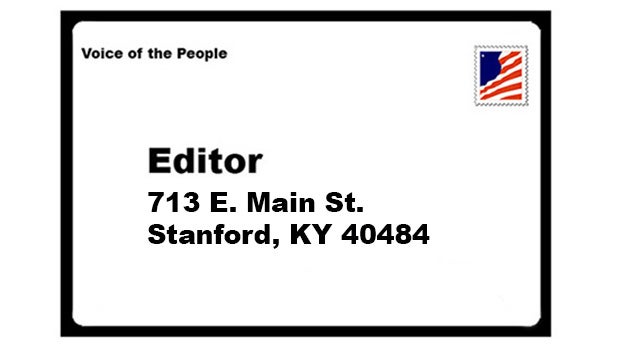New facilitates do not facilitate better learning, higher taxes stifle growth
Published 1:27 pm Thursday, June 22, 2017
New facilitates do not facilitate better learning, higher taxes stifle growth
Dear Editor,
The Thursday, June 15 publication of The Interior Journal contained a rambling and logically incoherent thought on the proposed nickel tax. The author attempted, rather inarticulately, to opine on the tax, as well as offer insight into the civic aspects of the schools and the assumed benefits of new schools – all of which fail when held to logical scrutiny.
I would preface the letter by stating that one must acknowledge a certain set of fundamental truths: new facilitates do not facilitate better learning and higher taxes stifle growth.
I am a 2014 graduate of Lincoln County High School, the 40th graduating class, and I am currently in my senior year of my undergraduate studies at the University of Kentucky. Having spent my entire primary and secondary education in the Lincoln County Schools, I can attest to the fact that if one applies oneself; then one will receive an education on-par with any private institution of learning. I was fortunate to have teachers and administrators dedicated to their profession who understood their community and the needs of those children who were both less fortunate than I, and required a higher-level of assistance in attaining their educational needs.
Throughout my time in the Lincoln County Schools I never once saw a child fall behind because of inadequate restroom facilities but instead fell victim to the tentacles of poverty and drug-addicted parents.
The author of the aforementioned letter cited numerous statistics – although he fails to cite his sources or offer context by which to measure these statistics – in an attempt to bolster his argument. I took particular interest in the figure that “fifty-percent of Lincoln County (is this residents or taxpayers?) will pay less than forty-five dollars in additional taxes.” (figures do not lie, but liars figure). What about the remaining fifty-percent of tax payers in Lincoln County? The humble farmers of our communities that work day and night to provide a means of livelihood to their families; should they bear the burden of additional taxes because their farms are valued at more than Mr. McGinnis’ property? The preceding statements are not intended to be rhetorical and one’s tax bills are not rhetorical; they are real and someone must pay.
Additionally, it is important that one address and consider the point which is commonly being raised around the issue of the nickel tax. The idea that Lincoln County is losing out on “matching money.” My curiosity is peaked by this argument. Is Governor Bevin printing money in the basement of the Governor’s mansion? Perhaps, Senator Stivers has a money tree in Manchester from which he distributes these matching funds? The reality is that matching monies are state funds which were raised through taxes – either as grants from the federal government or as monies raised from taxpayers of the Commonwealth. There are no “free lunches” and there is no “free monies”.
Before closing, I feel it incumbent upon me to address Mr. McGinnis on his most absurd, incoherent and arrogant point. He states that “it was decided” in the “early 2000’s” that “community events were no longer important” and offers an anecdotal commentary of Pioneer Days. In my vast readings I missed the minutes on the Consortium of Community Affairs of the Early 2000’s to determine what is and what is not relevant to a community, apparently Chaired by Mr. McGinnis. In fact, I would offer my own anecdotal commentary to state that in the last decade or so we have seen a deep and concerted effort to revitalize not only the community but the culture of Stanford, thanks to the works of Jess and Angela Correll; we have seen a revitalized Main Street and a focus on Community development and stewardship. It is true that certain communities in Lincoln County have been virtually strangled by the closure of their schools – whether Mr. McGinnis is aware of these effects is moot in relation to these truths. Lincoln Countians know it to be the truth; and Lincoln Countians know that we are best served when our leaders are from Lincoln County and understand Lincoln County issues and people.
One should reflect and consider the argument made by proponents and opponents of the nickel tax; but one should use logical discernment to deduce that higher taxes, more debt and fewer schools in their communities hardly seems to be the proper solution.
Chance C. Bender
Stanford, KY


